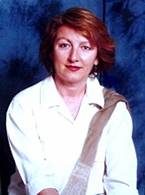Article
of the Month
Reviewed by Dr Carla Ripamonti (Italy), an IAHPC Board Member
Pilot study of Panax quinquefolius (American ginseng) to improve cancer-related fatigue: a randomized, double-blind, dose-finding evaluation: NCCTG trial N03CA
Barton DL, et al. Supportive Care in Cancer 2010; 18: 179-187
The authors report a pilot study on the use of three doses of American (Wisconsin) ginseng in patients with cancer-related fatigue to assess the effects on symptom intensity and to evaluate toxicity.
The two most common species of ginseng are Asian (Panax ginseng) and American (Panax quinquefolius). They are commonly mixed with active substances such as ginsenosides and some of them have specific ergogenic properties (Rb1 and Rg1).
Asian ginseng was most frequently used in pilot studies on animals and humans but it is difficult to find and the quality is sometimes poor. American ginseng is available, of good quality and has a good toxicity profile - insomnia is the most common adverse effect.
Adult patients with cancer-related fatigue > 4 (0= no fatigue, 10 = fatigue as bad as you can image) for at least 1 month and who also had pain controlled, had no insomnia and no hypothyroidism were stratified according to the stage of their disease (I/II vs III/IV), gender, fatigue score intensity (4-7 vs 8-10) and the type of oncological therapy (chemo vs no chemo and radiotherapy vs no radiotherapy).
The patients enrolled in the study were randomized to receive placebo, 750 mg, 1000 mg or 2000 mg per day of American ginseng divided in 2 doses: the 1 st in the morning and the 2 nd in the afternoon with food. Both the patients and physicians were blinded with respect to the treatment. The toxicity was self reported and evaluated weekly, whereas the assessment of fatigue (Brief Fatigue Inventory), the vitality subscale of the Medical Outcome Scale Short Form-26 (SF-36), the sleep quality (PSQI) and the Global Impression of Change were assessed at baseline and again at 4 and 8 weeks.
A total of 175 patients (mean age 60 years, 65% female) completed the 8-week phase of the study. In all arms of the study most of the patients had III/IV stage disease, more than 50% were on chemotherapy and 17% to 19% were on radiotherapy.
There were no significant trends for all outcomes, but the 1000 and 2000 mg/day doses of ginseng were favoured . The mean scores for the vitality subscale showed a greater effect on fatigue for 1000 and 2000 mg /day of American ginseng. At these same doses there was also an improvement in the quality of life. The placebo arm had a higher improvement in sleep. No statistical difference was observed in the adverse effects in the 4 groups. Over twice as many patients on ginseng perceived having received a benefit during the treatment and were satisfied compared to those on placebo.
Further studies are necessary to better understand the efficacy of the routine clinical use of American ginseng in patients with cancer-related fatigue.
Why I choose this article
Fatigue is one of the most common symptoms in patients with cancer at any stage of the disease. The National Comprehensive Cancer Net work definition is “ a persistent subjective sense of tiredness related to cancer or cancer treatment that interferes with usual functioning”. Cancer related fatigue is not relieved by sleep or rest. The study of pharmacological treatments such as steroids, methylphenidate, antidepressants, donepezil, L-carnitine and amantadine were not shown to be helpful and need to be investigated in large RCTs. Ginseng is a promising natural product for the treatment of cancer-related fatigue. American ginseng has been shown to have antiproliferative effects in breast tissue and is under investigation in patients with colon cancer.
This review was written by Dr. Carla Ripamonti, Italy
Dr. Ripamonti is a member of the IAHPC Board of Directors; her bio may be viewed at: http://www.hospicecare.com/Bio/c_ripamonti.htm |

